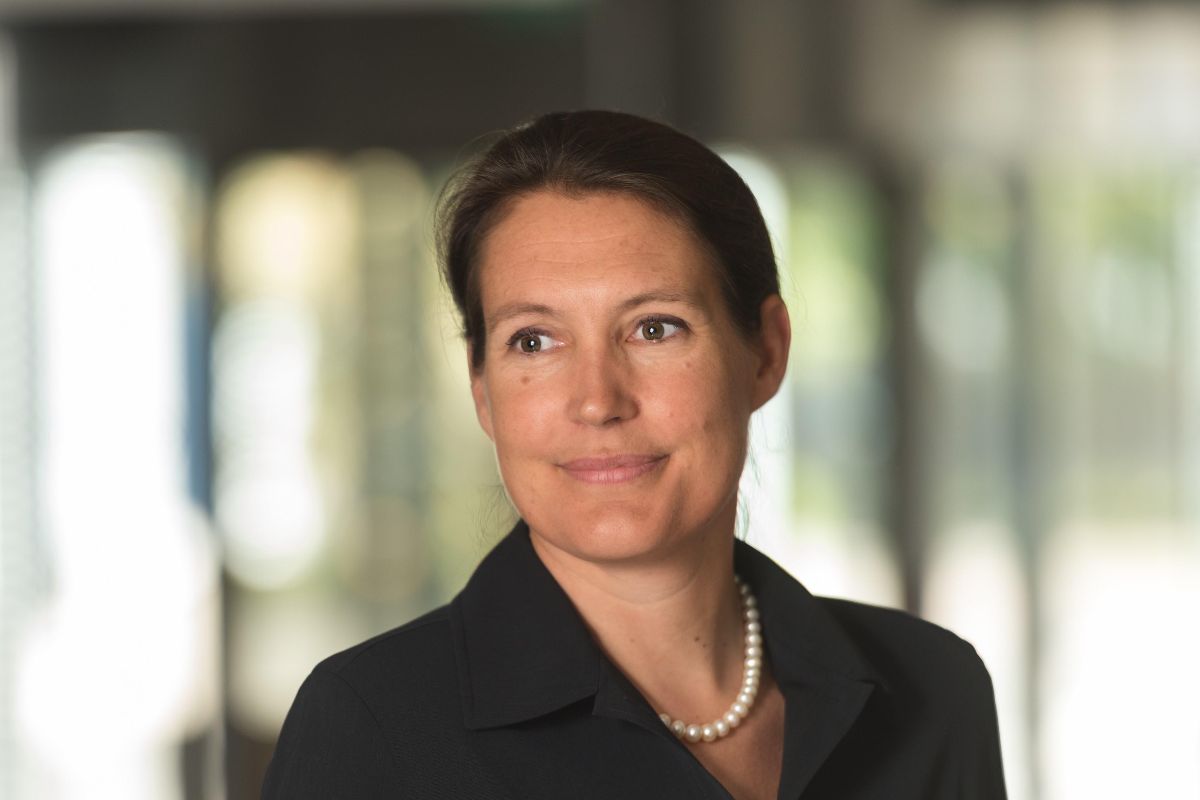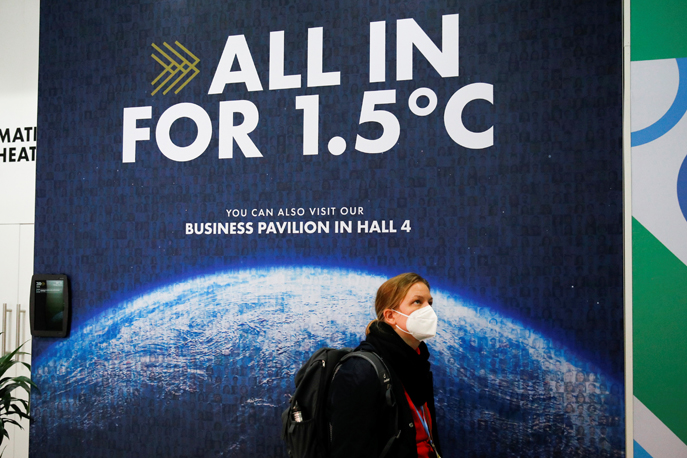Mike Scott speaks to the chief financial officer of Dutch nutrition company DSM in the third part of our series on the role of CFOs in the race to net zero
DSM is a Dutch company with an English name (DSM is short for Dutch State Mines) that no longer describes what it does – it’s not owned by the Dutch State and its last coal mine shut in the early 1970s.
Today it is a world leader in animal and human nutrition. It has long had a focus on sustainability and was one of the first ESG stocks, says Geraldine Matchett, chief financial officer and co-CEO. As CFO, she is intimately involved in the integration of sustainability into the business.
“Because we have embedded sustainability targets in our incentive system for many years, I am very involved in setting targets and reporting on them, ensuring that this is done with the same rigour as the financial reporting,” she says. “This reporting is externally audited to ensure the highest standards of assurance. It’s not just about whether the figures are right, but [asks] is the roadmap they set out credible, because it impacts our capital allocation.
Our intent is to have as many people as possible thinking about this as a normal part of the business
“When it comes to embedding sustainability into value creation, we take a three-layered approach – we look at our own footprint and what we can do to help our customers to realise their own sustainability ambitions. We also advocate on these issues. We have spoken out for a long time on the need for a meaningful price on carbon,” she continues. “We don’t just speak out on it. The finance department has embedded an internal carbon price into our operations – it started at €50/tonne and is now €100.”
The carbon price is used to inform investment decisions, but it is also integrated into DSM’s budget decision process – business units that can make carbon savings against this synthetic carbon price will find it easier to reach their targets. “It brings the finance team much closer to the rest of the company. Our intent is to have as many people as possible thinking about this as a normal part of the business,” Matchett explains.
An example of the carbon price in action is a power plant for a production facility near Basel in Switzerland where, five years ago, the company installed a biomass system fuelled by woodchips. “We would never have done that if we hadn’t had the carbon price,” Matchett points out. “It was more expensive, but the carbon price helped make the investment case. And today, with the energy disruption we’re currently seeing in Europe, the investment looks even more logical than it did five years ago. Investments like this future-proof the company. If you look at this early and embed it in a systematic way, it makes a big difference.”

The carbon price is also important to DSM’s innovation process, she adds. “We look at innovations in terms of whether they will make sense to our customers in a world where the carbon price is €100.”
And the co-CEO has some advice for others looking to implement an internal carbon price. “Don’t be excessively scientific about it, it doesn’t add value. You don’t need to differentiate between regions or link to an existing carbon price like the EU ETS. Just pick a number, preferably one with ambition, and pop it in. It doesn’t have to be complicated if you keep it simple.”
DSM has targeted a 50% cut in emissions, in absolute terms, by 2030, but it is also focused on the wider benefits its products can bring to society and to its customers. It uses a “Brighter Living Solutions Matrix”, which measures how many of its products are market-leading in their environmental and social impacts. “It is an extremely important measure because it drives our innovation strategy and embeds the core principles of ESG into what we do. We can have a much bigger impact in the wider economy if we change the products that we sell,” says Matchett.
We don’t see sustainability as a cost, but as investment in a value proposition
“The vast majority of our innovations have a sustainability value proposition embedded in them.” One of these is “Project Clean Cow”, which was initiated 10 years ago as the company looked at what it could do to minimise the methane emissions from cows. Methane is more than 80 as potent a greenhouse gas as CO2, but has not had the same policy attention as CO2 because it stays in the atmosphere for a much shorter time. But now, with the need to bring emissions down by 50% by 2030, it is seen as one of the most effective ways to tackle climate change in the short term.
At the time, Project Clean Cow was seen as quite outlandish, but “fast forward to today and methane is an externality that the world cares about. The Global Methane Pledge is taking centre stage at COP26. And we have regulatory clearance for a feed ingredient that cuts methane emissions by at least 30% in dairy cows and up to 60% in beef cattle,” Matchett says.
She adds that sustainability is “part and parcel of doing business. We look at it as derisking. Maybe we don’t get rewarded by the market immediately, so all the other aspects have to be there as well – price, quality etc. But then as consumer concerns move towards sustainability factors, our customers switch their emphasis and they want to work with partners who think like them and can enable them to be more sustainable. We don’t see it as a cost, but as investment in a value proposition.”
But demonstrating that you have plans to reduce your footprint is a must-have for businesses now, rather than a competitive advantage. “The real ESG stars are those that embrace the broader environmental, social and governance picture,” she adds.
This broader approach sees a shift in emphasis by investors and other stakeholders from looking at what companies are doing on a standalone basis to considering them in a much more systemic way – where a company fits into its particular system, whether that is energy, food or some other issue.
“When we’re looking at the impact of cows, we have to consider it from the point of view of the farmer, dairy cooperatives, retailers, consumers and regulators,” she explains.
We have been doing this long enough that we know this is driving our growth, our innovation and our relationships with customers
Being co-CEO as well as CFO “helps to embed even more deeply that fact that sustainability and ESG are value-creating issues that are fundamental to future-proofing the company. We have been doing this long enough that we know this is driving our growth, our innovation and our relationships with customers.”
Speaking at the start of the COP26 summit in Glasgow, Matchett said: “It’s easy to be sceptical about COP, but it makes countries stand there in the spotlight and be held accountable. It tends to make things move.”
She was hopeful there would be movement on carbon pricing “because it helps to put capital in the right places. I would also like to see a meaningful shift in subsidies, not just in energy but in agriculture, too. The subsidies support the most destructive forms of agriculture at the moment. It’s one of the most difficult areas, though, so I am not that hopeful."
“I am encouraged by the pledge on methane, as this is very actionable,” she added. “This is the single fastest, most effective way to slow climate change in the near term. But we could go further and faster, especially if there is more support for agriculture. We need government support to speed up its availability and adoption.”

'It's easy to be sceptical about COP. But it tends to make things move,' says Matchett. (Credit: Phil Noble/Reuters)
She also welcomed the IFRS Foundation’s announcement of an International Sustainability Standards Board and the consolidation of disclosure organisations. “We counted more than 2,000 ESG reporting points and 600 different benchmarks and ratings recently. This defeats the purpose because it allows companies to pick and choose. With so many, there’s bound to be one that makes you look good.
“Clear, comparable disclosure would make it very apparent which companies are really stepping up and would help inform financing decisions that are more sustainable.”
Beyond Glasgow, the finance industry needs to move away from thinking just about outputs to a consideration of outcomes – a step that DSM made in September when it announced a series of commitments related to food systems. “It requires measuring things we’re not used to measuring, such as the true value of food outcomes in areas such as employment and social justice. It is well beyond the comfort zone of financial professionals but it is the next generation of thinking.”
Geraldine Matchett is a member of the Accounting for Sustainability CFO leadership network. She will be speaking at Reuters Events Sustainable Finance & Reporting Europe on 25-26 November, a virtual event that will bring together more than 2,000 sustainability professionals, policy makers, and finance executives to discuss the transition to a sustainable, climate-friendly economy. You can register to attend here
See the other interviews in our CFO series:
Alexsandro Broedel: ‘Sustainability is part of the business model, not something that stands alone’
Melanie Kreis: ‘If we are serious about net zero, we need to know how much it will cost’
Race to zero Science Based Targets chemicals sector methane emissions A4S Carbon Pricing

